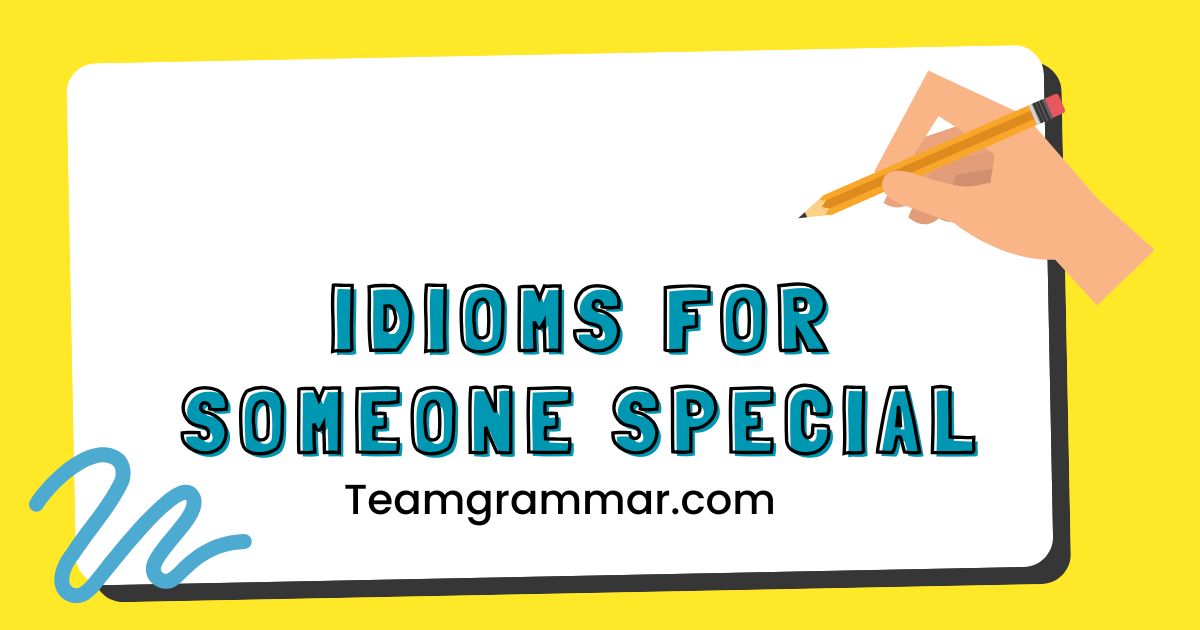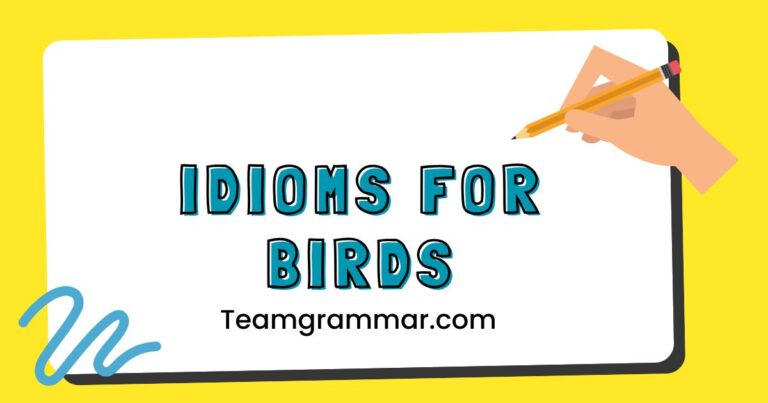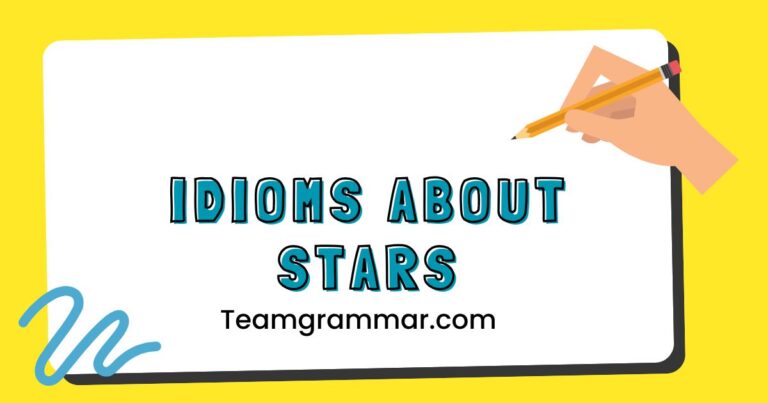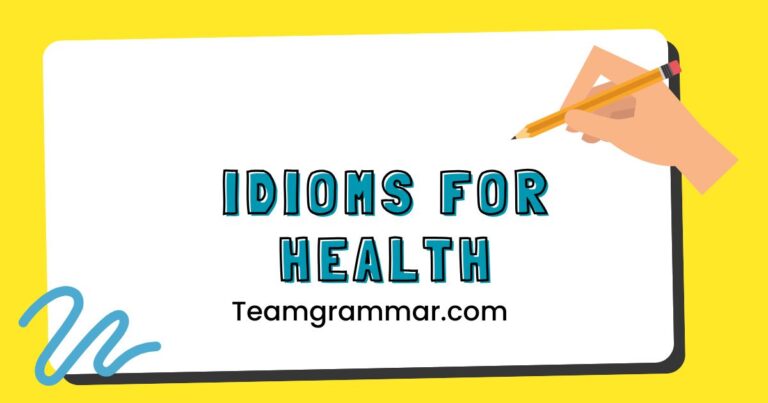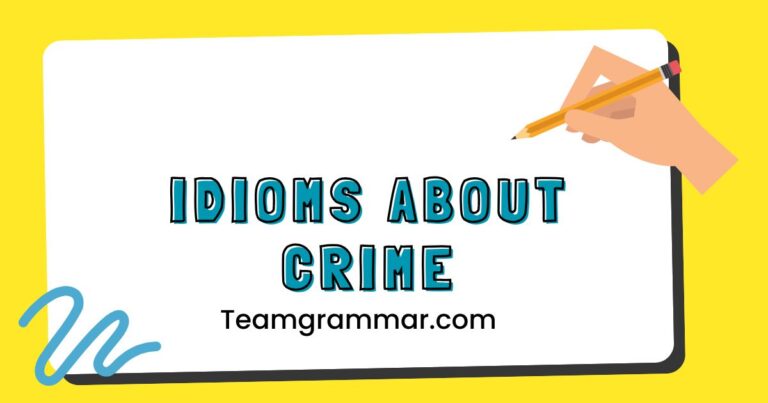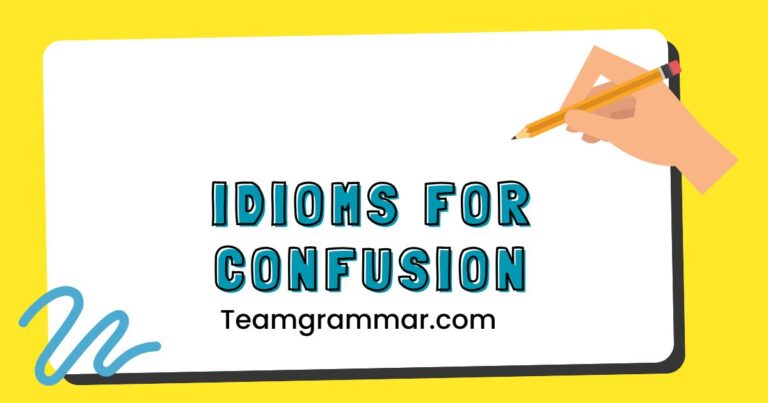45 Idioms for Someone Special: Expressing Affection in English
Expressing affection can be challenging, especially when you want to go beyond simple phrases. English idioms offer a delightful way to convey deep emotions and admiration for someone special.
Mastering these idioms not only enriches your vocabulary but also adds a layer of nuance and creativity to your expressions of love and appreciation. This article explores a variety of idioms used to describe and express feelings for someone special, providing definitions, examples, and practical exercises to help you confidently incorporate them into your daily conversations and written communication.
This guide is perfect for English language learners, romantic souls, and anyone looking to add a touch of eloquence to their expressions of endearment.
Table of Contents
- Introduction
- Definition of Idioms for Someone Special
- Structural Breakdown of Idioms
- Types and Categories of Idioms for Someone Special
- Examples of Idioms for Someone Special
- Usage Rules for Idioms
- Common Mistakes When Using Idioms
- Practice Exercises
- Advanced Topics: Nuances and Context
- Frequently Asked Questions
- Conclusion
Definition of Idioms for Someone Special
Idiomsare expressions whose meanings cannot be understood from the literal meanings of the individual words within them. They are a type of figurative language that adds color and depth to communication.Idioms for someone specialare specifically those expressions used to convey feelings of love, affection, admiration, endearment, or attraction towards another person.
These idioms often rely on metaphors, similes, and cultural contexts to express emotions that are difficult to articulate directly. Understanding these idioms is crucial for comprehending the subtleties of English and effectively expressing your feelings.
The function of idioms for someone special is multifaceted. They not only express emotions but also add emphasis and creativity to your language.
They can soften the intensity of direct declarations of love or admiration, making your expressions more nuanced and engaging. Furthermore, using idioms demonstrates a strong command of the English language and an understanding of its cultural nuances.
Idioms are often used in informal contexts, such as conversations with friends, family, or romantic partners, but they can also appear in literature, poetry, and even some forms of professional communication.
Context is key when using idioms. The meaning of an idiom can change depending on the situation and the relationship between the speakers.
It’s important to consider your audience and the overall tone of your communication before using an idiom. For example, some idioms might be appropriate in a romantic setting but not in a formal business environment.
Similarly, some idioms might be considered old-fashioned or cliché, while others are more contemporary and fresh. Choosing the right idiom for the right context can significantly enhance your communication and ensure that your message is received as intended.
Structural Breakdown of Idioms
Idioms, by their very nature, defy straightforward structural analysis. Their meaning is not derived from the sum of their parts; instead, it’s a holistic interpretation rooted in cultural understanding and common usage.
Therefore, dissecting the structure of an idiom involves understanding its component words and how they collectively contribute to the overall figurative meaning.
Most idioms consist of a combination of nouns, verbs, adjectives, and prepositions. The arrangement of these elements often follows standard English grammar rules, but the key is that their literal meanings are superseded by the idiomatic meaning.
For instance, the idiom “apple of my eye” uses common nouns and prepositions, but its meaning – someone cherished above all others – cannot be deduced from the individual words themselves. Instead, it draws upon a historical and cultural understanding of the apple as a symbol of value and the eye as a vital organ.
Some idioms may contain grammatical irregularities or archaic language, further obscuring their literal meaning. These irregularities often contribute to the idiom’s unique character and historical context.
For example, the idiom “to be head over heels” uses a slightly unusual word order to emphasize the feeling of being completely overwhelmed by love. Understanding these structural nuances can help you appreciate the richness and complexity of idioms and use them more effectively in your own communication.
Types and Categories of Idioms for Someone Special
Idioms for someone special can be categorized based on the specific emotions or sentiments they convey. Here are some key categories:
Idioms of Love and Affection
These idioms express deep feelings of love, care, and attachment. They often describe the intensity and depth of romantic love or the strong bond between family members or close friends.
Examples include “head over heels,” “tie the knot,” and “have a soft spot for.”
Idioms of Admiration and Appreciation
These idioms convey a sense of respect, admiration, and gratitude for someone’s qualities, achievements, or character. They highlight the positive attributes of the person and express a sincere appreciation for their presence in your life.
Examples include “the salt of the earth,” “a diamond in the rough,” and “one in a million.”
Idioms of Endearment and Fondness
These idioms express gentle affection, warmth, and tenderness towards someone. They are often used in intimate relationships or when speaking to children or pets.
Examples include “sweetheart,” “dear,” and “bundle of joy.”
Idioms of Attraction and Desire
These idioms express a romantic or physical attraction towards someone. They often describe the feeling of being drawn to someone or the desire to be closer to them.
Examples include “have a crush on,” “carry a torch for,” and “sweep someone off their feet.”
Examples of Idioms for Someone Special
The following tables provide extensive examples of idioms for someone special, categorized by the types discussed above.
Examples of Love and Affection Idioms
This section presents a comprehensive list of idioms that are used to express deep feelings of love and affection.
| Idiom | Meaning | Example Sentence |
|---|---|---|
| Head over heels | Deeply and madly in love | They fell head over heels for each other during their trip to Italy. |
| Tie the knot | To get married | After dating for five years, they decided to tie the knot. |
| Have a soft spot for | To feel affection for someone | He always has a soft spot for his younger sister, no matter what she does. |
| Take my breath away | To be overwhelmed by someone’s beauty or charm | Her stunning dress took my breath away when she walked into the room. |
| My other half | Someone who completes you; your soulmate | She is not just my wife; she is my other half. |
| Two peas in a pod | Very similar in personality or appearance | They are two peas in a pod and always agree on everything. |
| A match made in heaven | A perfectly compatible couple | Everyone says they are a match made in heaven. |
| Lovey-dovey | Excessively affectionate in public | They were being all lovey-dovey during the movie. |
| Wear your heart on your sleeve | To make your feelings obvious | He wears his heart on his sleeve, so everyone knows he’s in love. |
| Puppy love | Young or immature love | It was just puppy love; they were only teenagers. |
| Crazy about | Very fond of; infatuated with | He’s crazy about her and can’t stop talking about her. |
| Fall for | To start to love someone | I began to fall for him after our first date. |
| Have the hots for | To be very attracted to someone (informal) | He has the hots for the new girl in class. |
| Be smitten with | To be completely charmed by someone | He was smitten with her from the moment they met. |
| Can’t live without | To feel that someone is essential to your life | I can’t live without you; you’re my everything. |
| My sunshine | Someone who brings joy and happiness to your life | You are my sunshine on a cloudy day. |
| My rock | Someone who provides support and stability | She’s been my rock through all the tough times. |
| The apple of my eye | Someone very precious to you | My granddaughter is the apple of my eye. |
| Joined at the hip | Inseparable | They’ve been joined at the hip since they were kids. |
| Better half | A humorous way to refer to one’s spouse | I’ll ask my better half what she thinks about the idea. |
| To cherish someone | To protect and care for someone lovingly | I will always cherish you and our memories together. |
| Deeply in love | Feeling a strong and profound love | They are deeply in love and planning their future. |
| A love nest | A place where a couple lives together, especially when they are newly married or in love | They decorated their new apartment as a cozy love nest. |
| To be head over heels for someone | To be completely and utterly in love with someone | He is head over heels for her and can’t imagine his life without her. |
| To have eyes only for someone | To be attracted to only one person | Since they met, he has had eyes only for her. |
| To be sweet on someone | To be romantically interested in someone | He’s been sweet on her ever since they met at the party. |
Examples of Admiration and Appreciation Idioms
This section provides examples of idioms used to express admiration and appreciation for someone.
| Idiom | Meaning | Example Sentence |
|---|---|---|
| The salt of the earth | A genuinely good and honest person | She’s the salt of the earth, always helping those in need. |
| A diamond in the rough | Someone with great potential but lacking refinement | He’s a diamond in the rough, but with the right training, he’ll excel. |
| One in a million | A very special and unique person | She’s one in a million; I’m so lucky to have her as a friend. |
| A heart of gold | A kind and generous person | He has a heart of gold and always puts others first. |
| A true gem | A valuable and admirable person | She’s a true gem; we’re lucky to have her on our team. |
| A stand-up guy/gal | An honest and reliable person | He’s a stand-up guy; you can always count on him. |
| A pillar of strength | Someone who provides support and stability | She’s been a pillar of strength for her family during the crisis. |
| An inspiration | Someone who motivates and encourages others | He’s an inspiration to all of us with his hard work and dedication. |
| A class act | Someone who behaves with grace and dignity | She’s a class act; she always handles herself with poise. |
| A ray of sunshine | Someone who brings joy and positivity | She’s a ray of sunshine, always brightening up the room. |
| Go the extra mile | To do more than what is expected | He always goes the extra mile to help his colleagues. |
| A cut above the rest | Superior to others | Her performance was a cut above the rest. |
| A shining example | A perfect model or role model | He is a shining example of hard work and dedication. |
| A force to be reckoned with | Someone powerful and influential | She is a force to be reckoned with in the business world. |
| Sharp as a tack | Very intelligent | He’s sharp as a tack and always knows the answers. |
| The best thing since sliced bread | An excellent invention or person | She’s the best thing since sliced bread; we couldn’t have done it without her. |
| A true leader | Someone who guides and inspires others effectively | He is a true leader, always motivating his team to succeed. |
| Out of this world | Extremely impressive or excellent | Her singing was out of this world; everyone was amazed. |
| A natural | Someone who is naturally talented | She’s a natural at playing the piano. |
| A whiz | Someone who is very skilled or knowledgeable | He’s a whiz at computer programming. |
| Second to none | The best; unmatched | Her dedication to her work is second to none. |
| A gift from God | Someone or something that is highly valued and appreciated | She’s a gift from God; we’re so grateful to have her in our lives. |
| A rare find | Someone or something that is hard to come by and highly valuable | He’s a rare find as an honest and reliable mechanic. |
| A golden heart | A very kind and compassionate person | She has a golden heart and always helps those in need. |
| The cream of the crop | The best of the best | They are the cream of the crop in their field. |
| A breath of fresh air | Someone or something that is new and refreshing | She’s a breath of fresh air in this stale environment. |
Examples of Endearment and Fondness Idioms
This table showcases idioms that express endearment and fondness towards someone.
| Idiom | Meaning | Example Sentence |
|---|---|---|
| Sweetheart | A term of endearment | “Good morning, sweetheart,” he said to his wife. |
| Dear | A term of affection | “Thank you, dear, for your help.” |
| Honey | A term of endearment | “How was your day, honey?” she asked her husband. |
| Darling | A term of affection | “You look beautiful, darling,” he said. |
| My love | A term of deep affection | “I miss you, my love,” she wrote in her letter. |
| Bundle of joy | A baby who brings great happiness | Their new baby is such a bundle of joy. |
| Angel | A term of endearment for someone kind and helpful | “You’re an angel for helping me with this,” she said. |
| Sunshine | Someone who brings happiness and light into your life | “You’re my sunshine,” he whispered to her. |
| Precious | Someone who is highly valued and loved | “She’s so precious to me,” he said of his daughter. |
| Sweet pea | A term of endearment, often used for children | “Come here, sweet pea,” she said to her granddaughter. |
| Buttercup | A term of endearment, often used for girls | “Good night, buttercup,” he said to his daughter. |
| My dear | A term of affection and respect | “Thank you, my dear, for your kindness.” |
| My treasure | Someone who is highly valued and cherished | “You are my treasure,” he told his wife. |
| Sweet thing | A term of endearment, often used for children or pets | “Come here, you sweet thing,” she said to her puppy. |
| Honeybun | A term of endearment | “How was school, honeybun?” she asked her son. |
| My everything | Someone who means the world to you | “You are my everything,” he said to her. |
| My rock | Someone who provides support and stability | “You’ve been my rock through everything,” she told him. |
| My world | Someone who means everything to you | “You are my world,” he whispered to her. |
| My heart | A term of deep affection | “You have my heart,” she said to him. |
| My soulmate | Someone who is perfectly suited to you | “You are my soulmate,” he told her. |
| Pumpkin | A term of endearment, often used for children | “Good night, pumpkin,” she said to her son. |
| My little star | A term of endearment for a child | “You’re my little star,” she said to her daughter. |
| My sunshine on a rainy day | Someone who brings happiness even in difficult times | “You’re my sunshine on a rainy day,” he told her. |
| My guiding light | Someone who provides guidance and support | “You’ve been my guiding light,” she said to him. |
| My best friend | Someone who is both a friend and a romantic partner | “You’re my best friend and my love,” he told her. |
| My partner in crime | Someone who you enjoy doing things with | “You’re my partner in crime,” she said to him. |
Examples of Attraction and Desire Idioms
The following table lists idioms used to express attraction and desire for someone.
| Idiom | Meaning | Example Sentence |
|---|---|---|
| Have a crush on | To be infatuated with someone | She has a crush on the new guy at work. |
| Carry a torch for | To continue to be in love with someone, even after a relationship has ended | He still carries a torch for his high school sweetheart. |
| Sweep someone off their feet | To make someone fall in love with you quickly | He swept her off her feet with his charm and romantic gestures. |
| Fall head over heels | To fall deeply and madly in love | They fell head over heels for each other on their first date. |
| Be smitten with | To be completely charmed and captivated by someone | He was smitten with her from the moment they met. |
| Have the hots for | To be very attracted to someone (informal) | He definitely has the hots for her. |
| Be sweet on | To be romantically interested in someone | He’s been sweet on her since they were kids. |
| Be drawn to | To be attracted to someone’s personality or qualities | She was drawn to his intelligence and sense of humor. |
| Have eyes for someone | To be attracted to only one person | He only has eyes for her. |
| Be infatuated with | To have a strong but often short-lived passion or admiration for someone | She was infatuated with the famous actor. |
| Be captivated by | To be attracted and held by someone’s charm or beauty | He was captivated by her smile. |
| Make someone’s heart flutter | To cause someone to feel excited and nervous because of attraction | He makes her heart flutter every time he speaks to her. |
| Set someone’s heart on fire | To ignite passion and desire in someone | Her beauty set his heart on fire. |
| Turn heads | To be so attractive that people notice you | She always turns heads when she walks into a room. |
| Knock someone dead | To be extremely attractive (informal) | She knocked them dead with her stunning dress. |
| Light someone’s fire | To excite or arouse someone’s passion | He really lights her fire with his adventurous spirit. |
| Drive someone wild | To make someone feel strong attraction or desire | She drives him wild with her playful teasing. |
| Be head over heels in love | To be completely and utterly in love | They are head over heels in love and can’t get enough of each other. |
| Have a thing for someone | To be attracted to someone | He has a thing for her, but he’s too shy to admit it. |
| Be under someone’s spell | To be enchanted or fascinated by someone | He was completely under her spell. |
| Be hot for someone | To be very attracted to someone (very informal) | She’s hot for him, and it’s obvious to everyone. |
| Be crazy about someone | To be very fond of or infatuated with someone | He’s crazy about her and can’t stop thinking about her. |
| Be wild about someone | To be extremely enthusiastic or passionate about someone | She’s wild about him and loves spending time with him. |
| Be hung up on someone | To be obsessively preoccupied with someone, often after a relationship has ended | He’s still hung up on his ex-girlfriend. |
| Fall hard for someone | To fall deeply in love very quickly | He fell hard for her from the moment they met. |
| Be swept away by someone | To be overwhelmed by someone’s charm or appeal | She was swept away by his kindness and generosity. |
Usage Rules for Idioms
Using idioms correctly requires attention to several details. Here are some key rules to keep in mind:
- Context is crucial: Always consider the context of your communication and the relationship between the speakers. Some idioms are appropriate in informal settings but not in formal ones.
- Know the meaning: Ensure you fully understand the meaning of the idiom before using it. Misusing an idiom can lead to confusion or miscommunication.
- Avoid overusing idioms: While idioms can add color to your language, overusing them can make your speech sound unnatural or forced.
- Consider your audience: Be mindful of your audience’s familiarity with English idioms. If you’re speaking to non-native speakers, it’s best to use idioms sparingly or explain their meaning.
- Pay attention to grammar: While idioms themselves are fixed expressions, you may need to adjust the grammar around them to fit the sentence. For example, you might need to change the verb tense or add articles.
Understanding the nuances of idiom usage is key to effective communication. Paying attention to these rules will help you use idioms confidently and appropriately in various situations.
Common Mistakes When Using Idioms
Many learners make common mistakes when using idioms. Here are some examples of incorrect usage and their corrected versions:
| Incorrect | Correct | Explanation |
|---|---|---|
| He’s the apple of my eyes. | He’s the apple of my eye. | The idiom is “apple of my eye,” not “eyes.” |
| They fell head over heels in love for each other. | They fell head over heels for each other. | The phrase “in love” is redundant. |
| She has a soft spot on him. | She has a soft spot for him. | The correct preposition is “for,” not “on.” |
| He carried a light for her. | He carried a torch for her. | The idiom is “carry a torch,” not “carry a light.” |
| They are like two peas from a pod. | They are like two peas in a pod. | The correct preposition is “in,” not “from.” |
Avoiding these common mistakes will improve your accuracy and confidence in using idioms.
Practice Exercises
Test your understanding of idioms for someone special with these exercises.
| Question | Answer |
|---|---|
| 1. Complete the idiom: She is the ______ of the earth. | salt |
| 2. What does “head over heels” mean? | Deeply in love |
| 3. Use “tie the knot” in a sentence. | They are planning to tie the knot next summer. |
| 4. What does it mean to “have a soft spot for” someone? | To feel affection for someone |
| 5. Complete the idiom: He is a ______ in the rough. | diamond |
| 6. What does “one in a million” mean? | A very special and unique person |
| 7. Use “sweetheart” in a sentence. | Good morning, sweetheart! |
| 8. What does “carry a torch for” someone mean? | To continue to be in love with someone, even after a relationship has ended. |
| 9. Complete the idiom: They are two ______ in a pod. | peas |
| 10. What does it mean to “sweep someone off their feet”? | To make someone fall in love with you quickly |
| 11. Complete the idiom: She has a ______ of gold. | heart |
| 12. What does “a true gem” mean? | A valuable and admirable person |
| 13. Use “sunshine” in a sentence. | You are my sunshine on a cloudy day. |
| 14. What does “my rock” mean? | Someone who provides support and stability |
| 15. Complete the idiom: He’s ______ about her. | crazy |
| 16. What does it mean to “fall for” someone? | To start to love someone |
| 17. Use “honey” in a sentence. | How was your day, honey? |
| 18. What does “my everything” mean? | Someone who means the world to you |
| 19. Complete the idiom: She’s my ______ in crime. | partner |
| 20. What does it mean to “fall hard for” someone? | To fall deeply in love very quickly |
Advanced Topics: Nuances and Context
For advanced learners, understanding the nuances and contextual implications of idioms is crucial. Idioms can carry cultural and historical baggage, and their usage can vary depending on the region, social group, and even the age of the speaker.
For example, some idioms might be considered old-fashioned or cliché, while others are more contemporary and fresh. Being aware of these nuances can help you choose the most appropriate and effective idiom for a given situation.
Furthermore, idioms can be used creatively and playfully to add humor or irony to your communication. By twisting or combining idioms, you can create new and unexpected expressions that resonate with your audience.
However, this requires a deep understanding of the underlying meaning and cultural context of the idioms involved. Experimenting with idioms can be a fun and rewarding way to enhance your language skills and express your personality.
Finally, it’s important to be aware of the potential for misinterpretation when using idioms, especially in cross-cultural communication. What might be a common and harmless idiom in one culture could be offensive or confusing in another.
Therefore, it’s always
to err on the side of caution and avoid using idioms that you’re not completely sure about, or to provide an explanation of their meaning to avoid any misunderstandings.
Frequently Asked Questions
Conclusion
Mastering idioms for someone special can significantly enhance your ability to express affection and admiration in English. By understanding the meanings, structures, and usage rules of these idioms, you can add depth, color, and nuance to your communication.
Remember to consider the context, audience, and cultural implications when using idioms, and practice regularly to improve your fluency and accuracy. With dedication and attention to detail, you can confidently incorporate these expressions into your daily conversations and written communication, enriching your relationships and making your expressions of love and appreciation even more meaningful.

